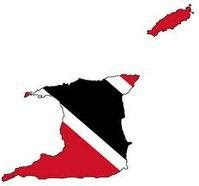Happy Republic Day to Our Men Studing Abroad.

ON BEING A REPUBLIC
The Red House - Parliament Building
When Trinidad and Tobago achieved independence on August 31st, 1962, the monarchy continued, in that, Her Majesty the Queen remained the Queen of Trinidad and Tobago and all citizens continued to owe allegiance to Her. After many years of being a monarchy, it was decided that Trinidad and Tobago should no longer be required to owe allegiance to the Queen and should therefore become a Republic having a Head of State in its own right,
Trinidad and Tobago became a Republic on August 1st, 1976. The event was celebrated as a public holiday on September 24th because this is the date when the first Parliament met under the new Republican Constitution.
To bring about such a meaningful and independent status, the conversion of the former Constitution from its character as an Order in Council of the Queen into that of an indigenous instrument of government fashioned by citizens of Trinidad and Tobago, was effected by the Parliament of Trinidad and Tobago enacting the Constitution of the Republic of Trinidad and Tobago Act, 1976.
The Constitution provides for a President who, in the exercise of his functions under the Constitution or any other law, acts in accordance with the advice of the Cabinet or a minister acting under the general authority of the Cabinet where provision is made by the constitution.
The Constitution also provides for the Prime Minister to keep the President fully informed concerning the general conduct of the government of Trinidad and Tobago and to furnish him with such information as he may request on any matter relating to the government of Trinidad and Tobago.
Ceremonial Opening of Parliament 2003
A principal feature of the Constitution is the inclusion of a comprehensive set of fundamental human rights and freedoms whereby all citizens of Trinidad and Tobago and minorities are provided with effective safeguards against arbitrary government and acts of the executive or other bodies or authorities which may be inconsistent with the concept of the Rule of Law.
These fundamental human rights and freedoms have been entrenched in the Constitution and any alteration of any of them can only be effected by the consent of effective majorities of both houses of Parliament.
In general, the Constitution of Trinidad and Tobago truly creates, fosters and encourages a truly democratic representative government and more particularly because of :
Its recognition and acceptance of fundamental human rights and freedoms to be enjoyed by all regardless of race, colour, sex, language, religion, political or other opinion, national or social origin, wealth, education, status or birth; and the incorporation of adequate machinery for the protection and enforcement of all rights and freedoms;
The inclusion of adequate checks and balances, in the Legislative, Executive and Judicial arms of Government;
The existence of an enlightened and independent Judiciary charged and vested with the ultimate determination as to whether the law, or executive or administrative acts infringe the enshrined rights and freedoms of the individual;
Its provision for representative government deriving its power and authority from the people, which power and authority are exercised through representatives freely chosen and responsible to them;
Its acceptance of free periodic elections based on universal adult suffrage held by secret ballot under conditions where the right to vote is exercised without hindrance or pressure; and
Its encouragement and built-in machinery for the creation and maintenance of an efficient, honest and impartial civil service.
The various Service Commissions created under the Constitution are intended to ensure that appointments, conditions of service, termination and retirement from the Public Service are based on uniform principles of impartiality and probity. The creation of an Integrity Commission is designed to maintain a high standard of morality in public affairs. Free and fair elections, including the delineation of constituencies are for much the same reason the responsibility of the Elections and Boundaries Commission. Above all, the Constitution firmly establishes a Cabinet system of Government under which Ministers are responsible to the legislature and, through it, to the country. General Elections are held at least every five years to give the people the opportunity of selecting a government. There exists a non-political Public Service, the members of which are expected to observe a high degree of neutrality in politics and loyalty to the government of the day. The same is expected of members of the armed forces and of the police. Under its Republican Constitution, Trinidad and Tobago has a form of government that is truly based upon the principles as well as the practice of Parliamentary Democracy and the Rule of Law. The Republic of Trinidad and Tobago is governed by a bicameral Parliament.
Source: The Ministry of Public Administration and Information
Happy Republic day Trinidad and Tobago. This goes out to our dear brothers who are abroad. Greetings to you all and God bless our nation. God bless fr.Urban Hudlin OP, fr. Carlyle Fortune OP, fr. Matthew Martinez OP, and fr. Stephen Jones OP. We miss you all.

Comments